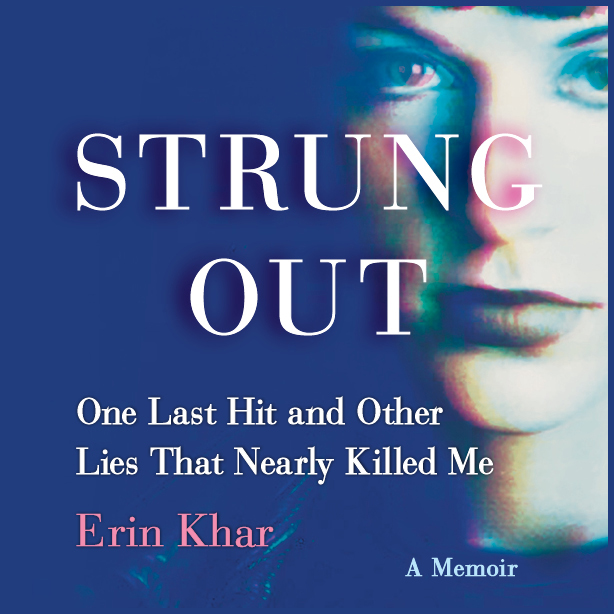
Q&A With Erin Khar, Author Of ‘Strung Out: One Last Hit And Other Lies That Nearly Killed Me’

Growing up among the middle class of Los Angeles, Erin Khar’s life seemed perfect. She made good grades, had lots of popular friends, and rode horses in her free time. She also started using heroin at the age of 13. For the next 15 years, Khar battled her heroin addiction that only ended when she became a mother.
We spoke to Khar about the stigma placed on once-addicted mothers, the critical role her family played in her recovery, and what lessons she wants to teach her kids about mental health and addiction.
Responses have been edited for clarity.
You discovered you were pregnant while still in the throes of your addiction. What happened next?
This is why I say that Atticus, my first son, saved my life. I wasn’t sure I’d ever be a mother, but I felt so much guilt over endangering this unborn child. So I found a doctor to help me detox and get off of drugs.
I was not at all confident that I would be able to stay stopped. But when he was born, something clicked for me. I loved him more than I hated myself. And that love was enough to get me through doing the hard work I had ahead of me to really recover. I liken it to winning the lottery. I don’t know why it clicked for me, and it doesn’t always do so for others.
I feel so damn lucky.
What stigma have you faced as a mother in recovery?
The first few years I was off of heroin, I didn’t tell a lot of people about my past and my struggle to get clean. But the real freedom in recovery came when I was transparent about who I was, the mistakes that I’ve made, and the life that I lead. Those lessons had real value. Letting go of that shame is the only real way to recover.
I don’t feel stigma anymore because if someone had a problem with something that happened 30 years ago, it says more about them than it does about me. That said, I have certain privileges that give me the opportunity to ignore any stigma. I had family support, and because of my race and socioeconomic status, I had access to therapy and rehab and much more. With this book, I want to increase the availability of access to the type of care I had. Most people don’t have that.
You talk about how important your stepfamily is to you. How did these relationships shape you?
I didn’t have stepparents until I was in my 20s, which also happened to be the worst years of my addiction. Their love and non-judgmental support of both me and my parents has been invaluable. I can’t imagine my life without either of them, I’m so lucky to have them.
Actually, all of my parents get along so well, we’ve all been on vacation together. It’s wonderful.
But no matter what, my stepparents never turned their backs on me or stopped loving me even when I made it really difficult. I lied to them, stole from them, and manipulated them, but when I reached out for help, they were there.
In fact, when I was in rehab the second time, my step-dad came to every family group meeting. He was so glad I was getting help, and was just there to support my mother and me. It was exactly what I needed from him.
You have found a home with several different groups of people over the years. What have you learned about chosen family?
Family is so much bigger than who we’re related to. I grew up as an only child, so some of my friends feel more like siblings. There may have been times we didn’t speak to each other, but we’ve always been there for each other.
Even if you have a good relationship with your family, you need a chosen family. It’s just a different kind of support. When [biological or legal] family passes away, you can rely on them. My mom has even acted as a surrogate mother to friends of mine who lost their own mothers. You’re never going to get all of your needs met by a single person or even a small group of people. It’s important to surround yourself with people who will support you regardless of their blood relation to you. The more we can do that, the less alone we’ll feel.
You had a very complicated relationship with your mother. How are you relating to your children, Atticus, 16, and Franklin, 2, differently?
Once I became a parent, there were certain things I began to understand about my own parents, including: You still hold onto the human parts of yourself even when you become a parent. My parents made mistakes, and so have I. We all do.
But I’m preemptively opening the lines of communication around mental health and addiction issues with my children. In fact, I’ve shared my history with drugs with my older son. My goal is to open the lines of communication about uncomfortable topics before my boys have to come to me. My parents didn’t do that. I just want them to know that they can come to me if they’re struggling with anything, and I won’t judge them.
You can preorder ‘Strung Out’ (Park Row Books, 2/25/20) here.